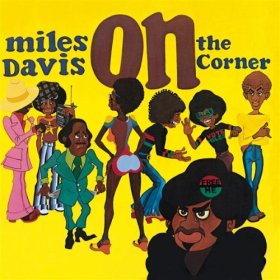Related Research Articles

Indianapolis, colloquially known as Indy, is the capital and most populous city of the U.S. state of Indiana and the seat of Marion County. Located in Central Indiana, the city lies along the White River's West Fork near its confluence with Fall Creek.

Randolph Denard Ornette Coleman was an American jazz saxophonist, trumpeter, violinist, and composer. He is best known as a principal founder of the free jazz genre, a term derived from his 1960 album Free Jazz: A Collective Improvisation. His pioneering works often abandoned the harmony-based composition, tonality, chord changes, and fixed rhythm found in earlier jazz idioms. Instead, Coleman emphasized an experimental approach to improvisation, rooted in ensemble playing and blues phrasing. AllMusic called him "one of the most beloved and polarizing figures in jazz history," noting that while "now celebrated as a fearless innovator and a genius, he was initially regarded by peers and critics as rebellious, disruptive, and even a fraud."

Hoagland Howard Carmichael was an American musician, composer, songwriter, actor and lawyer. Carmichael was one of the most successful Tin Pan Alley songwriters of the 1930s, and was among the first singer-songwriters in the age of mass media to utilize new communication technologies such as television, microphones, and sound recordings.

John Leslie "Wes" Montgomery was an American jazz guitarist. Montgomery was known for his unusual technique of plucking the strings with the side of his thumb, and for his extensive use of octaves, which gave him a distinctive sound.
Jazz rap is a fusion of jazz and hip hop music, as well as an alternative hip hop subgenre, that developed in the late 1980s and early 1990s. AllMusic writes that the genre "was an attempt to fuse African-American music of the past with a newly dominant form of the present, paying tribute to and reinvigorating the former while expanding the horizons of the latter." The rhythm was rooted in hip hop over which were placed repetitive phrases of jazz instrumentation: trumpet, double bass, etc. Groups involved in the formation of jazz rap included A Tribe Called Quest, Digable Planets, De La Soul, Gang Starr, The Roots, Jungle Brothers, and Dream Warriors.

The music of Indiana was strongly influenced by a large number of German and Irish immigrants who arrived in the 1830s. A prime example is "I'll Take You Home Again, Kathleen" written by Thomas Westendorf, from Hendricks County, Indiana, in 1875.

David Nathaniel Baker Jr. was an American jazz composer, conductor, and musician from Indianapolis, as well as a professor of jazz studies at the Indiana University Jacobs School of Music. Baker is best known as an educator and founder of the jazz studies program. From 1991 to 2012, he was conductor and musical and artistic director for the Smithsonian Jazz Masterworks Orchestra. He has more than 65 recordings, 70 books, and 400 articles to his credit.
Cecil Green was an American racecar driver from Dallas, Texas.

On the Corner is a studio album by American jazz trumpeter, bandleader, and composer Miles Davis. It was recorded in June and July 1972 and released on October 11 of the same year by Columbia Records. The album continued Davis's exploration of jazz fusion, and explicitly drew on the influence of funk musicians Sly Stone and James Brown, the experimental music of Karlheinz Stockhausen, the free jazz of Ornette Coleman, and the work of collaborator Paul Buckmaster.

North Central High School is a public high school in Indianapolis, Indiana, United States. It is part of the Metropolitan School District of Washington Township. North Central is an International Baccalaureate (IB) school.

Jazz-funk is a style that grew out of jazz and the music fused jazz and funk music. The integration of funk, soul, and R&B music and styles into jazz resulted in the creation of a genre whose spectrum is quite wide and ranges from strong jazz improvisation to soul, funk or disco with jazz arrangements, jazz riffs, jazz solos, and sometimes soul vocals.

Leroy Carr was an American blues singer, songwriter and pianist who developed a laid-back, crooning technique and whose popularity and style influenced such artists as Nat King Cole and Ray Charles. Music historian Elijah Wald has called him "the most influential male blues singer and songwriter of the first half of the 20th century". He first became famous for "How Long, How Long Blues", his debut recording released by Vocalion Records in 1928.

"(Back Home Again in) Indiana" is a song composed by James F. Hanley with lyrics by Ballard MacDonald that was published in January 1917. Although it is not the state song of Indiana, it is perhaps the best-known song that pays tribute to the Hoosier state.

Joseph Bowie is an American jazz trombonist and vocalist. The brother of trumpeter Lester Bowie, Joseph is known for leading the jazz-punk group Defunkt and for membership in the Ethnic Heritage Ensemble.
Johnny Socko was an American third wave ska band formed in Bloomington, Indiana, United States, in 1990. It was founded by Joseph Welch, Mike Wiltrout, and Steve Mascari. Welch recruited Dylan Wissing at a musical instrument store in Bloomington where they both worked. Wissing recruited Eric Evans (trumpet), who in turn recruited Dave Sterner, and Al Batton (trombone). Soon after, Josh Silbert (sax) and Charlie Krone (trombone) replaced Sterner and Batton respectively. Originally signed to BiB Records and later Asian Man Records, they later started their own record label, Triple R Records. Their first album, Bovaquarium, was described by music critic Marc D. Allan of the Indianapolis Star as "intricately written and brilliantly arranged and performed." Johnny Socko performed everywhere from the legendary Whiskey-a-go-go in Hollywood, California to the infamous CBGBs, Lion's Den, and Limelight in Manhattan. They were known as a band that toured heavily, having performed over 2,000 shows since their inception, but stopped touring in 2003. One of their songs, "Full Trucker Effect", is used in its entirety as part of the introduction to the Bubba The Love Sponge show on Sirius Satellite Radio. The band takes its name from Johnny Sokko and his Flying Robot, a 1960s Japanese action television show.
The Pride of Indy Bands is a performing musical ensemble in Indianapolis of gay, lesbian, bisexual, transgender, and other LGBT-friendly musicians. Founded in March 2005, The Pride of Indy Band and Color Guard is currently the only LGBT instrumental and pageantry ensemble in Indiana, and is a member of the Lesbian and Gay Band Association. The organization conducts its activities in a supportive, accepting and affirming atmosphere, and includes experienced and amateur musicians. The band also assists adult members who do not have access to instruments by helping them rent or borrow instruments through local organizations.
During the American Civil War, Indianapolis, the state capital of Indiana, was a major base of supplies for the Union. Governor Oliver P. Morton, a major supporter of President Abraham Lincoln, quickly made Indianapolis a gathering place to organize and train troops for the Union army. The city became a major railroad hub for troop transport to Confederate lands, and therefore had military importance. Twenty-four military camps were established in the vicinity of Indianapolis. Camp Morton, the initial mustering ground to organize and train the state's Union volunteers in 1861, was designated as a major prisoner-of-war camp for captured Confederate soldiers in 1862. In addition to military camps, a state-owned arsenal was established in the city in 1861, and a federal arsenal in 1862. A Soldiers' Home and a Ladies' Home were established in Indianapolis to house and feed Union soldiers and their families as they passed through the city. Indianapolis residents also supported the Union cause by providing soldiers with food, clothing, equipment, and supplies, despite rising prices and wartime hardships, such as food and clothing shortages. Local doctors aided the sick, some area women provided nursing care, and Indianapolis City Hospital tended to wounded soldiers. Indianapolis sent an estimated 4,000 men into military service; an estimated 700 died during the war. Indianapolis's Crown Hill National Cemetery was established as one of two national military cemeteries established in Indiana in 1866.

Bernard Wright was an American funk and jazz keyboardist and singer who began his career as a session musician and later released four solo albums.

The Sextones is a soul and funk band originated in Reno, Nevada in 2007. Its members are Mark Sexton, Alexander Korostinsky, Daniel Weiss, and Chris Sexton.
References
- ↑ Henderson, Alex. "Funk, Inc. Biography". AllMusic . Retrieved June 23, 2007.
- ↑ "Funk Inc. Page". Soulwalking.co.uk. Retrieved February 11, 2020.
- 1 2 "Funk, Inc. - Awards". AllMusic . Archived from the original on September 13, 2015. Retrieved February 5, 2022.